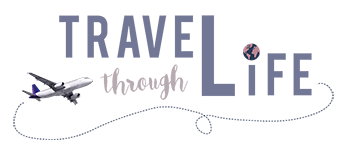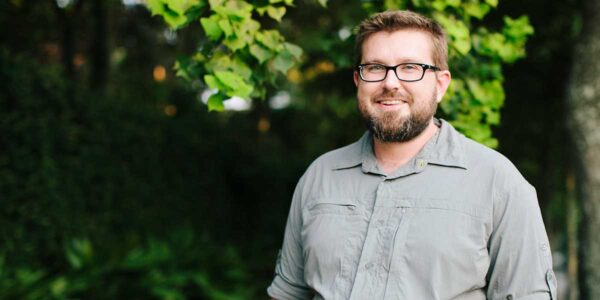While we continue meeting the People of NC, it’s important to remember that there are quite a few folks who’ve been covering this state long before we came here. Jason Frye is one of them and is someone I’ve been hoping to meet for a while. He and I lived in the same part of West Virginia before we both eventually relocated to North Carolina, though he’s lived here a lot longer than we have. Frye is also an accomplished travel writer and an inspiration to those of us who hope to someday see our names printed in some of the travel industry’s biggest publications. Through this interview with him, I was hoping to gain a little bit of insight about his favorite parts of North Carolina to cover and any advice he could throw our way. He went far above and beyond that call, delivering so much bulletin board-worthy wisdom that I’m happy to share with you right now.
Jason Frye, Travel Writer
Background
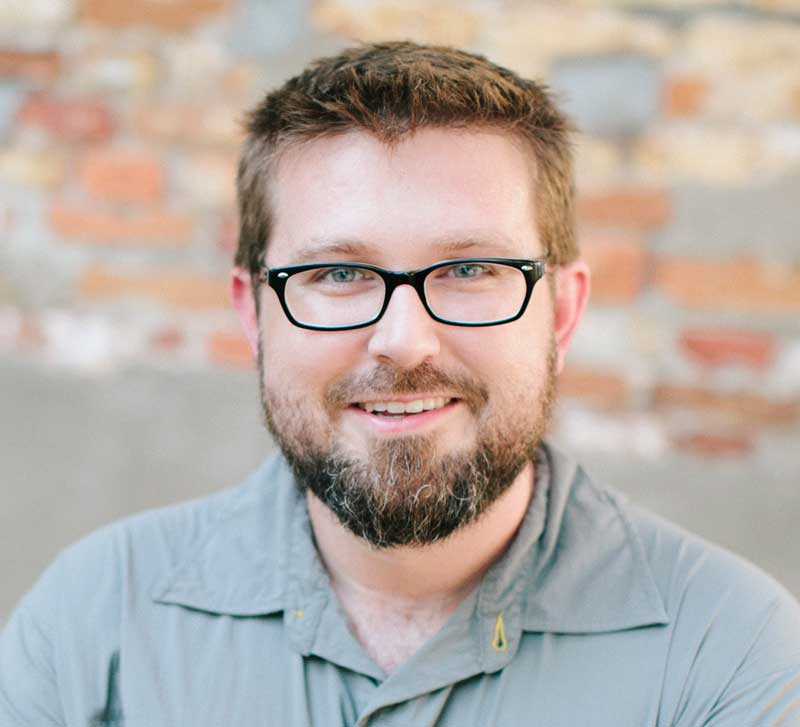
Where do you live in North Carolina and what brought you here?
I live in Wilmington and have been here since 2002. Growing up in Logan, West Virginia, we vacationed on the Carolina Coasts, frequenting Myrtle Beach, South Carolina, for years, then switching to the more laid back Outer Banks of North Carolina. After I graduated from Marshall University, I moved to Virginia where I was briefly a Middle School teacher, but not wanting to be that cliche English teacher who’s “working on a book this summer,” I moved to Wilmington to pursue my MFA in Creative Writing. My choices for graduate school were broad, and I nearly went to Arizona, but my memories of The Outer Banks were enough to draw me to North Carolina’s southern coast and it’s been a great choice for me.
How did you become a travel writer and why did you want to become one?
After graduate school, I looked around for a writing job that paid a living wage and Wilmington, unfortunately, didn’t have that, so I continued to work designing and making cabinets and furniture with my father-in-law. Working a creative job like that helped feed my creativity in other areas and after a while, the opportunity came for me to do some freelance writing for North Brunswick Magazine. The first piece I did for them was actually a travel piece, a story about visiting the beaches in Brunswick County. That opened a door for me and I began writing for NBM more and freelancing for other magazines in the area.
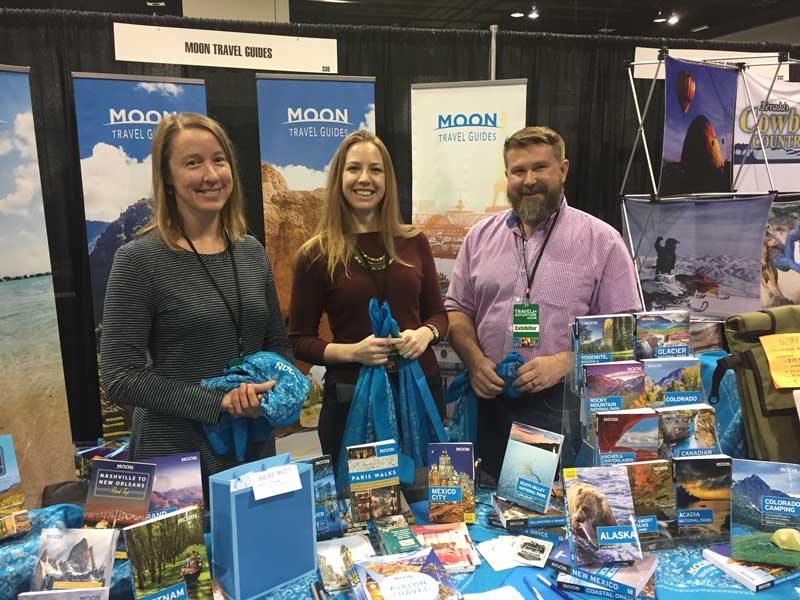
Much of what I was writing had nothing to do with travel or food, but on occasion, I’d get to write about a brewer or a kayak guide, and that inspired me to do more about people like that. I mean I’d talk to a brewer and our interview would be over beers; the kayak guide and I would go for a long paddle and I’d record our conversation, it didn’t get any better than doing interviews like that. Once I had that revelation I started saying “yes” to fewer stories about chiropractors or dentist’s offices opening and began pitching the kinds of stories I wanted to write. Over time I pointed most of what I was writing toward the hospitality industry. That led to my work as the Hospitality Columnist for the Greater Wilmington Business Journal and then to become Restaurant Critic for the StarNews; along the way I worked for Our State, Visit NC, and other outlets writing about culture, food, and travel in North Carolina.
Challenges as a Travel Writer
What’s the hardest thing about being a travel writer? Ever want to give up?
There are days when being a travel writer is mind-bogglingly frustrating, but I also have days where I get to drink beer at a Biergarten in Nuremberg or taste Champagne at a family-run winery in France or go swimming in the Peruvian Amazon. But it is a job. Another writer I know described it this way: My job is to go have an experience, then write about it in such a way that you can go do it better. I think that’s a great summation because, yes, I did get to explore Lima, Peru, for four days and then go on a five day exploration of the Amazon, but not all of my time was used well, not every meal was noteworthy, and not everything I did was the way you should spend your time, but when I wrote about it, I was able to help guide readers to have a similar, better, experience while in Peru. And that’s how I look at my job as the author of Moon North Carolina (and the other five Moon titles I have)—come and see this place, but use my suggestions to build an excellent experience.
To get back to your question: yes, it’s frustrating and the hardest part is actually a two-part answer. First, it’s difficult financially as the pay for travel and food stories is, by and large, lower than people expect and that payment follows a variety of schedules. Some outlets pay when they accept the story (after final edits are done), some pay at the end of the month after the story is accepted, some pay upon publication (meaning I receive a contributors copy of the magazine and a check at the same time) or at the end of the month of publication, others have more complex pay schedules, but it all means that I may research and write a story, then get paid for it anywhere from a month to 18 months later. The financial side is difficult because it presents budgetary challenges and it ebbs and flows.
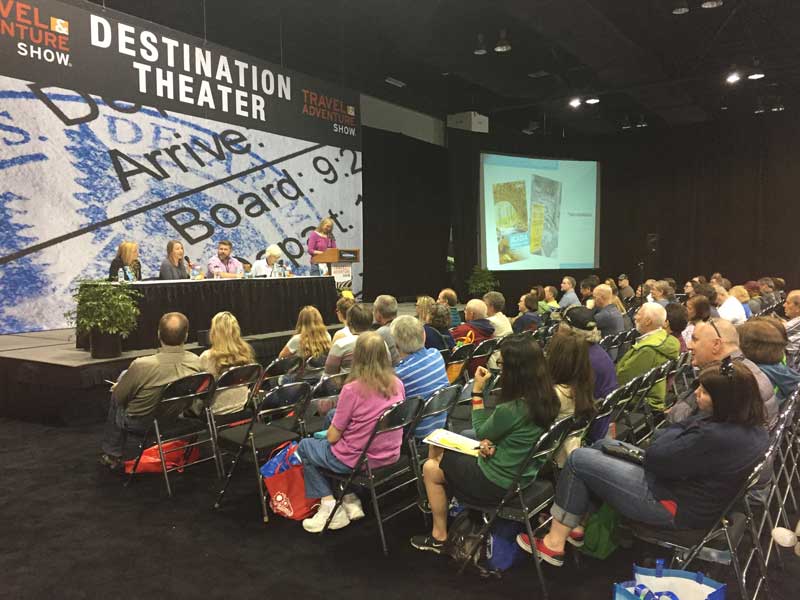
The second difficulty in the travel writing industry is selling stories. There are fewer outlets that pay and a lot of writers competing to place stories in those outlets, so I have to be very targeted with my pitches (the story ideas I sent to editors in hopes they’ll say, “We’ll pay you money to write this!”) and be sure they are well written, well thought out, and fit the outlet. I tell people that as a freelance writer, half of my job is sales, but the things I sell are me and my ideas.
And do I ever want to give up? Sure I do. There are days when three editors tell me “No” to three great story ideas and the American Express bill is here but I’m waiting on the check to arrive from that big story I wrote and the water heater needs to be replaced. All of that—the personal rejection and the financial strain—is stress-inducing and there are days I consider seeing if Costco needs another cashier. But then someone tells me, “I read your story in XYZ and I loved it, can’t wait to read more” or I get the opportunity to write for a new magazine because some editor loved my pitch and suddenly all that stress is gone and I’m back in love with my work.
North Carolina
What’s your favorite part of North Carolina to cover as a writer?
I’m torn on this question. If we’re talking about “favorite part of North Carolina” in terms of geography, I love to get to write about the mountains—Boone and Blowing Rock and Hendersonville and Brevard are amazing, as are Asheville and Cherokee and Morganton, and each for distinct reasons—but if we’re talking favorite ways to experience NC, it’s food. I find writing about food to be much more inclusive in that food touches on history, culture, geography, people, personalities and the experience of the dish and the meal as a whole. So when I write about barbecue, I get to talk about the reason we cook the whole hog on the coast and why we use oak coals (almost exclusively) and why the sauce here is the way it is; same for Lexington’s shoulders and distinctive dip and their mix of wood. And when I write about that, I get to point you to barbecue restaurants that offer experiences from the rustic to the refined, and sides that are century-old family recipes or chef-driven “foodie foods.” Food excites me because North Carolina’s food story isn’t limited to barbecue and Calabash-style seafood, and in discovering new restaurants, chefs, and traditions, I get to tell more of the NC story in a way that people respond to.
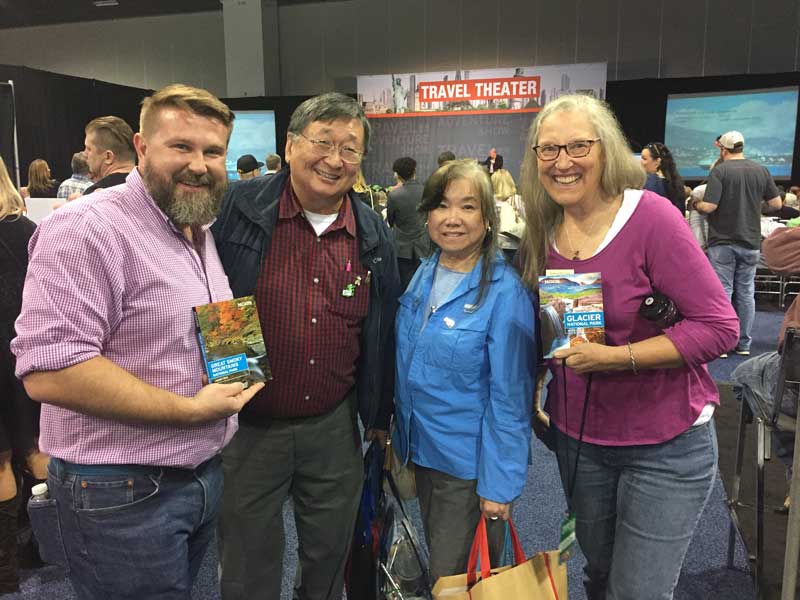
What piece about North Carolina, whether it’s an article or book, are you most proud of creating?
I wrote a piece for Dallas Morning News about NC Barbecue that I loved writing because the audience there in Texas is so barbecue savvy that to tell them why they should come to NC for whole-hog ‘cue was a thrill. Several things I’ve done for Our State have been exciting—the Halifax Accords, a profile of Pops Peterson, a story on Calabash—and I liked getting into the science of leaf change for a story on fall color that ran in the Charlotte Observer a couple of years ago. One of my favorites though is Moon Great Smoky Mountains National Park. It’s the first national park I visited and one that I hold dear, so to get to write about it was an awesome opportunity.
Jason Frye’s guidebook collection continues to grow and if you’re going to one of the places he’s covered, please check it out from his perspective.
Advice
Any advice you’d like to give to someone wanting to do what you’re doing?
Yes, first, you must be a reader and a writer. Write often and about a variety of things and read broadly, from great travel/food writing to novels to poetry to the magazines and blogs where you want your work to appear. Then be ready to face the challenges of writing as a career: the rejection can take a toll, the finances can be difficult, but the feeling you get from landing a story in your dream outlet or really nailing a profile or hearing “great job” from someone keeps your energy high.
Our Thoughts and Yours, Too!
Selfishly, I feel like so much of Jason’s thoughts on life as a travel writer was speaking to my own challenges, but I know that it goes way beyond just me. It was such a pleasure having a writer and person who deserves so much claim spend the time to provide such detailed answers for us. He’s also an inspiration for making a place for himself in such a competitive yet rewarding industry and North Carolina is lucky to have him as a resident and ambassador.
Do you have any advice or thoughts that you’d like to share, based on Jason’s interview? We’d love to read about it in the comments section below!
This post originally appeared on our sister site NC Tripping and we’ve decided to include Jason in our blog’s People who Travel series, thanks to his work beyond North Carolina. Featured image by Millie Holloman Photography. The remaining images provided by Jason Frye. If you haven’t already, follow Jason on Instagram and Twitter because he’s always up to something new and fun that will eventually appear in print or online somewhere.
